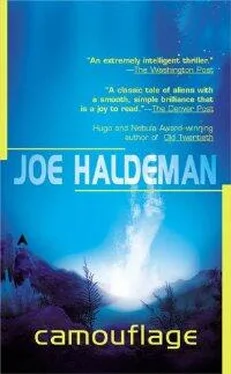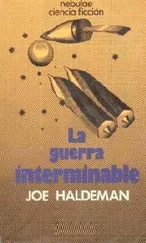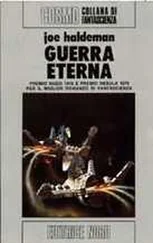Of course Jack Halliburton knew that the sub had ruptured and there was no chance of survivors. But it made it possible for Russell Sutton to ply down the length of the Tonga and Kermadec Trenches. He made routine soundings as he went, and discovered a mysterious wreck not far from the sub.
There was plenty of respectful news coverage of the two crews’ efforts—Sutton’s working out of professional courtesy and patriotism. Raising the Titanic had given them visibility and credibility. With all the derring-do and pathos and technological fascination of the submarine story, it was barely a footnote that Russ’s team had seen something interesting on the way, and had claimed salvage rights.
It was an impressive sight when the sub came surging out of the depths, buoyed up by the house-sized orange balloons that Russ had brought to the task. The cameras shut down for the grisly business of removing and identifying the sailors’ remains. They all came on again for the 121 flag-draped caskets on the deck of the carrier that wallowed in the sea next to the floating hulk of the sub.
Then the newspeople went home, and the actual story began.
San Quillermo, California, 1931
They put a white hospital robe on it and sat it down in an examination room. It continued the safe course of imitative behavior with the doctors and nurses and with the man and woman who were the real Jimmy’s father and mother, even duplicating the mother’s tears.
The father and mother followed the family doctor to a room out of earshot.
“I don’t know what to tell you,” Dr. Farben said. “There’s no evidence of any injury. He looks to be in excellent health.”
“A stroke or a seizure?” the father asked.
“Maybe. Most likely. We’ll keep him under observation for a few days. It might clear up. If not, you’ll have to make some decisions.”
“I don’t want to send him to an institution,” the mother said. “We can take care of this.”
“Let’s wait until we know more,” the doctor said, patting her hand but looking at the father. “A specialist will look at him tomorrow.”
They put it in a ward, where it was observant of the other patients’ behavior, even to the extent of using a urinal correctly. The chemistry of the fluid it produced might have puzzled a scientist. The nurse remarked on the fishy odor, not knowing that some of it was left over from a porpoise’s bladder.
It spent the night in some pain as its internal organs sorted themselves out. It kept the same external appearance. It reviewed in its mind everything it had observed about human behavior, knowing that it would be some time before it could convincingly interact.
It also reflected back about itself. It was no more a human than it had been a porpoise, a killer whale, or a great white shark. Although its memory faded over millennia, past vagueness into darkness, it had a feeling that most of it was waiting, back there in the sea. Maybe it could go back, as a human, and find the rest of itself.
A couple enjoying the salt air at dawn found a body the tide had left in a rocky pool. It had been clothed only in feasting crabs. There was nothing left of the face or any soft parts, but by its stature, the coroner could tell it had been male. A shark or something had taken both its arms, and all its viscera had been eaten away.
No locals or tourists were missing. A reporter suggested a mob murder, the arms chopped off to get rid of fingerprints. The coroner led him back to show him the remains, to explain why he thought the arms had been pulled off—twisted away—rather than chopped or sawed, but the reporter bolted halfway through the demonstration.
The coroner’s report noted that from the state of decomposition of the remaining flesh, he felt the body had been immersed for no more than twelve hours. Sacramento said there were no appropriate missing persons reports. Just another out-of-work drifter. The countryside was full of them, these days, and sometimes they went for a swim with no intention of returning to shore.
Over the next two days, three brain specialists examined Jimmy, and they were perplexed and frustrated. His symptoms resembled a stroke in some ways; in others, profound amnesia from head trauma, for which there was no physical evidence. There might be a tumor involved, but the parents wouldn’t give permission for X rays. This was fortunate for the changeling, because the thing in its skull was as much a porpoise brain as it was a human’s, and various parts of it were non-human crystal and metal.
A psychiatrist spent a couple of hours with Jimmy, and got very little that was useful. His response to the word association test was interesting: he parroted back each word, mocking the doctor’s German accent. In later years the doctor might classify the behavior as passive-aggressive, but what he told the parents was that at some level the boy probably had all or most of his faculties, but he had regressed to an infantile state. He suggested that the boy be sent to an asylum, where modern treatment would be available.
The mother insisted on taking him home, but first allowed the doctor to try fever therapy, injecting Jimmy with blood from a tertian malaria patient. Jimmy sat smiling for several days, his temperature unchanging—the body of the changeling consuming the malarial parasites along with other hospital food—and he was finally released to them after a week of fruitless observation.
They had retained both a male and a female nurse; their home overlooking the sea had plenty of room for both employees to stay in residence.
Both of them had worked with retarded children and adults, but within a few days they could see that Jimmy was something totally unrelated to that frustrating experience. He was completely passive but never acted bored. In fact, he seemed to be studying them with intensity.
(The female, Deborah, was used to being studied with intensity: she was pretty and voluptuous. Jimmy’s intensity puzzled her because it didn’t seem to be at all sexual, and a boy his age and condition ought to be brimming with sexual energy and curiosity. But her “accidental” exposures and touches provoked no response at all. He never had an erection, never tried to look down her blouse, never left any evidence of having masturbated. At this stage in its development, the changeling could only mimic behavior it had seen.)
It was learning how to read. Deborah spent an hour after dinner reading to Jimmy from children’s books, tracing the words with her finger. Then she would give Jimmy the book, and he would repeat it, word for word—but in her voice.
She had the male nurse, Lowell, read to him, and then of course he would mimic Lowell. That made the feat less impressive, as reading. But his memory was astonishing. If Deborah held up any book he had read and pointed to it, he could recite the whole thing.
Jimmy’s mother was encouraged by his progress, but his father wasn’t sure, and when Jimmy’s psychiatrist, Dr. Grossbaum, made his weekly visit, he sided with the father. Jimmy parroted the list of facial nerves that every medical student memorizes, and then a poem by Schiller, in faultless German.
“Unless he’s secretly studied German and medicine,” Grossbaum said, “he’s not remembering anything from before.” He told them about idiots savants, who had astonishing mental powers in some narrow specialty, but otherwise couldn’t function normally. But he’d never heard of anyone changing from a normal person into an idiot savant; he promised to look into it.
Jimmy’s progress in less intellectual realms was fast. He no longer was clumsy walking around the house and grounds—at first he hadn’t seemed to know what doors and windows were. Lowell and Deborah taught him badminton, and after initial confusion he had a natural talent for it—not surprising, since he’d been the best tennis player in his class. They were amazed at what he could do in the swimming pool— when he first jumped in, he did two rapid lengths underwater, using a stroke neither of them could identify. When they demonstrated the Australian crawl, breast stroke, and backstroke, he “remembered” them immediately.
Читать дальше












